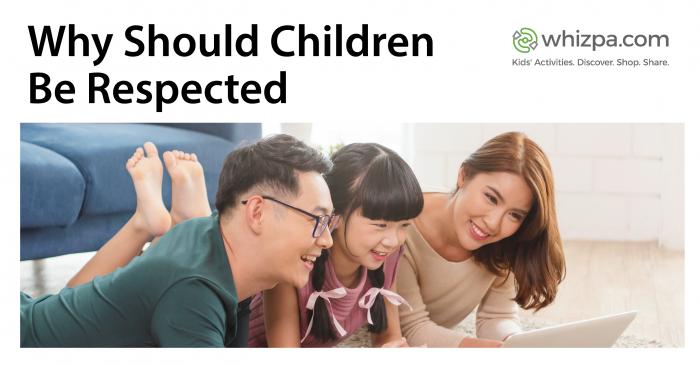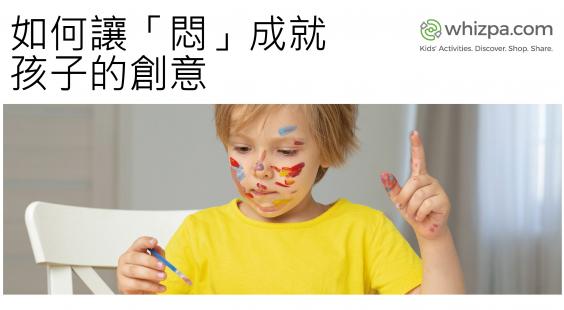
Why Should Children Be Respected?
As adults, we all want our peers, colleagues, friends, and family members to respect us. We have that innate need to feel safe, to express ourselves, to be understood/accepted as we are, and be valued as a human being by others.
One might wonder; do children also need to be respected? Do they have similar needs as well? Per the experts, the answer is a resounding yes. Respect is one the most fundamental virtues that we can and should develop in our children. Respect is the glue that can strengthen relationships, foster harmony in communities and at a global scale, even eradicate the social evils of war and animosity.
There are several benefits of treating children with respect. If children are given respect at home, they are naturally able to learn the following skills:
- Ability to overcome conflicts – All of us have to deal with conflicts a number of times and so will our kids, no matter what age they are. There will be conflicts at the playground (wanting a turn at the swing), conflicts at school (wanting to share a friend) or disagreements at home with siblings (who gets to sleep with the favourite teddy). If we are able to teach our children how to amicably share their belongings or resources with others, we can prevent a lot of conflicts in the future.
- Ability to build lasting relationships – Treating others kindly is one of the most important aspects of ‘respect’. We may disagree with others on a number of topics, but if we can still hold the relationship steady despite these differences, we have truly learnt the meaning of respect. Teaching kids how the work with others even if they don’t have similar opinions or viewpoints about certain things will give them an edge in building a strong social circle in life and maintaining lasting friendships.
- Understand the importance of self-care - Those kids who care about others also learn to care about themselves. Such children would naturally stay away from self-harming substances like drugs, alcohol etc. and will also choose friends who have the common value of self-respect; they would rather want to engage with others on some meaningful areas of interest. They won’t do anything that might be dangerous or bring harm to themselves or their friends.
- Have better quality of life – Children who have been treated with respect are happier, more successful, and have healthier habits. They are unselfish, considerate, caring, and generous. Such children are also more likely to trust others easily, feel secure in relationships, and overall have a higher emotional quotient.
Teaching kids how to respect others just by talking about it may be a hard concept for them to grasp. They really need to see it all in action to be able to imbibe respect. Here’s how it can be put into action:
1. Practice what you preach. - Parents are the primary role models for kids. For the first few years of a child’s life, he/she only gets to see the parents’ reactions to situations and people. Children are expected to show respect to their parents from a young age, but the best way they learn is through their parents. So, make sure you the next time you and your partner disagree in front of your children, you maintain a calm disposition; if you see a friend sitting alone or feeling left out at a house party, you go and check up on them.
2. Use your words well - Choose your words wisely as they become your kids’ inner voice. Let’s look at two situations where the child has 2 different environments.
Environment 1 – A child is yelled at for completing homework, taunted for not keeping his room clean at all times, asked to join interest classes without taking into account his preference, ridiculed for the choice of TV shows, is always rushed to complete his sentences, and blamed for making mistakes.
Environment 2 – The child is encouraged to share her needs and wants, the child is consulted before planning a playdate with a particular friend, she feels safe to always speak the truth, she is not afraid to admit her mistakes as she knows there will be no yelling.
It is but obvious that the child in environment 2 will grow into a much calmer and balanced person who won’t be scared of conflicts as she would have mastered the art of working things out in a respectful manner. The child in environment 1 might grow up thinking he is never good enough for anything and continue to live in fear of making mistakes and dealing with unpleasant consequences.
3. Teach Children Different Forms of Respect - Being respectful can imply a lot of things. If we have to teach our kids, what does it entail, we can start teaching them things like:
- Ability to use polite words with family and friends even if one is hurt or upset
- Having the basic etiquettes to say please, thank you, and sharing/ waiting your turns
- No desire to damage your own or someone else’s property
- Using soft voice in places of worship or museums or any such public places
- Understanding that everyone is unique and different and accepting those differences
- Agree to disagree but without any yelling or loud words
- Caring about others’ resources
4. Use targeted feedback - If you see the kids are doing well at something, let them know it. Help them see that their actions have an impact and they make a difference. So instead of just saying, “good boy/good girl”, you can use some specific praise like, “It was very nice of you to help your little sister climb up her chair” or “I love how neatly you have stacked your books in the room’s corner”
5. Understand their physiology - Children’s brains continue to grow up until the age of 25. Hence, we cannot expect them to make the most rational decisions and act in the quickest way possible like adults. Allow as much time as practically possible for their movements (tying their laces), for conversation (sharing an incident in playground) or walk at their pace. Ask them for inputs in family discussions (age-appropriate topics) and include them in housework (“can you help me carry the rubbish bag out to the chute”) to make them feel valued and responsible.
6. Stay Honest – Don’t be scared to admit your mistakes in front of your kids. If you accidently cross a red signal, apologize, own up your mistake and tell them out loud that you shall pay the fine immediately. Let them witness that making mistakes is normal and it doesn’t lead to unpleasant consequences.
It is a daunting task to not get agitated, angry or upset in front of our kids when some situations perturb us. But parents who intentionally model appropriate behaviour daily for their kids are more likely to facilitate the development of well-adjusted young adults who know how and why they should treat others well. These well-adjusted young adults shall help their communities move forward with respect and make mankind a lot more tolerant and understanding of one another; which is without a doubt, the need of the hour.








